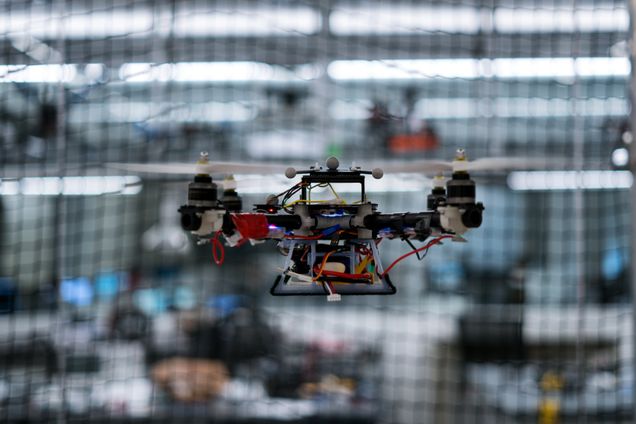New Robotics & Autonomous Systems Master’s Draws Strong Interest
Students, companies eager to participate
 By Michael Seele
By Michael Seele
Start a new master’s degree program, put together a curriculum, and recruit students less than a year before classes begin. Then add in a global pandemic that sends most students away from campus and forces faculty to re-conceptualize how they deliver instruction.
Despite these challenges, the master’s program in Robotics & Autonomous Systems is off to a strong start, having just completed its first semester. Enrollment in the first class is nearly double what was anticipated, faculty adapted to the Learn from Anywhere model and students are engaged with the demanding coursework, while also understanding the temporary restrictions imposed by COVID-19.
The program drew interest not only from prospective students, but also from industry. More than a dozen robotics companies in the Boston area agreed to consider the program’s students for internships before classes even began, and more are expressing interest. These companies are also offering input on the curriculum.
Professor Sean Andersson (ME, MSE), the program’s director, said students are particularly enjoying the machine learning aspect of the program. “They like the opportunity to take courses in this hot topic,” he said. “Several companies told us they want machine learning in the curriculum. They need people with experience and capability in that domain.”
The signature feature of the program is a paid internship. While other programs offer internships, BU’s is the only one that requires it, a significant factor in attracting students. While most companies don’t start accepting applications for summer interns until the early months of the year, Andersson led the effort to get students applying in the fall. That included helping students prepare and refine their resumes, in conjunction with the Career Development Office. A few of the companies extended offers before the end of 2020.
Darwin Chiu was a recipient of one such offer. He will intern with Prodrive Technologies, a research and manufacturing company, this summer. Chiu, who graduated from the College of Engineering last year with a Mechanical Engineering bachelor’s degree and a Manufacturing Engineering concentration, hopes to combine his robotics work with his manufacturing background in implementing autonomous systems during his internship. He credits the program’s proactive approach, not only to helping students find internships, but also to helping students get the most out of the program.
“I really appreciate Professor Andersson,” Chiu said. “He’s been super helpful reaching out to companies, working on our resumes and discussing what I’m trying to get out of the program and what classes I should take.”
Chiu added that while many students are taking classes remotely, students in the program have been able to form a community through apps like WhatsApp. “We all know each other and interact,” he said.
Chiu, like other students in the program, would like more of the hands-on experience that has been limited by COVID restrictions, but he has taken classes like Control Theory and Optimization that emphasize theory. Andersson noted that while the Engineering Product & Innovation Center could not be used this year, students in Professor of the Practice Anna Thornton’s (ME) Additive Manufacturing course – an elective in the program – were able to borrow loaner 3D printers and work with them at home.
Early indications are that interest in the program remains strong among prospective students. As of mid-January, applications to the fall 2021 class were running 20 percent ahead of last year.